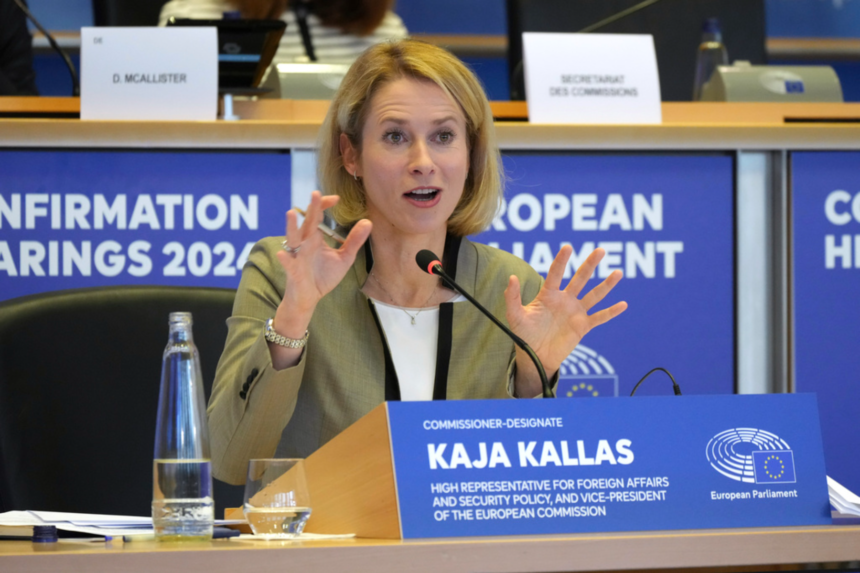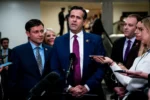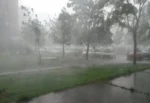On Tuesday, all attention in Brussels was on Kaja Kallas. The former Prime Minister of Estonia is set to become the new High Representative for Foreign Affairs and Security Policy of the European Union (EU) for the next five years.
During a hearing before the European Parliament’s Foreign Affairs Committee, she presented her vision for the EU, which, according to Kallas, will be a more prominent geopolitical actor in the world.
This goal is also pursued through the EU’s enlargement policy, particularly focusing on the region with six countries, namely the Western Balkans. Kosovo is the only country in the region that, despite its aspirations to join the EU, does not yet have candidate status.
“Enlargement makes our Union stronger. New EU members become more stable and secure, and it helps us all progress further. In the next five years, we need clear results here. I will work hand in hand with the Commissioner for Enlargement to achieve this goal,” said the upcoming EU foreign affairs chief.
Among her responsibilities, Kallas, like her predecessor Josep Borrell, will oversee the Kosovo-Serbia dialogue. She briefly mentioned this process as one of the two key paths the EU is working on, alongside enlargement to the Balkans, and stated that it would be one of her priorities during her early visits.
“The other track is, of course, the Pristina-Belgrade dialogue, where all my predecessors have invested a lot of time, and this will bring stability to the region,” Kallas emphasized.
Kallas, who is on Russia’s blacklist, also stated that the European bloc must remain a strong supporter of Ukraine, which is facing military aggression from its neighbor, the Russian Federation.
She stressed, “If aggression succeeds in one country, it invites aggression in another,” which is why, according to Kallas, Russian aggression in Ukraine must fail.
If the European Parliament confirms all the new European commissioners in November, the new composition of the European Commission will begin its mandate on December 1, with German politician Ursula von der Leyen returning as president for a second term.







